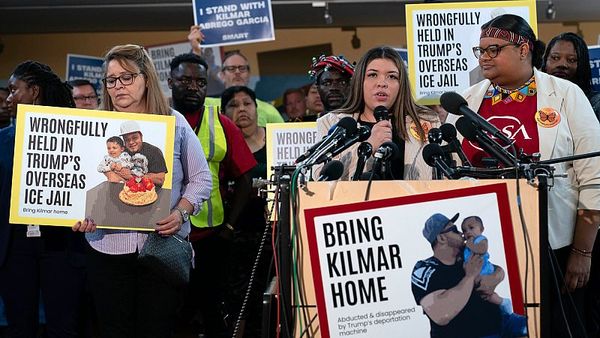SAN DIEGO — Maybe you're surprised that a star infielder would test positive for a banned substance and be suspended for 80 games just as he was about to return from injury in the heat of a playoff race, with his team bolstered by trade-deadline acquisitions primed to make a World Series run in a city desperate for its first major sports title.
But don't be surprised that a player from the Dominican Republic was ensnared by Major League Baseball's anti-doping net, porous as it is.
We're way beyond coincidence.
Padres shortstop Fernando Tatis Jr. becomes the 58th player hit with a doping ban of at least 50 games since the advent of the Joint Drug Prevention and Treatment program in 2005. He's the 33rd born in the Dominican Republic, or 57 percent, and that doesn't count Alex Rodriguez, who was born in New York to Dominican immigrants, spent part of his formative years in the DR and had a father who played in the island's baseball league.
It's even more striking in recent years. Since 2017, there have been 20 sanctions. Sixteen, or 80 percent, are Dominicans.
Eighty percent.
Number of Dominican players on opening day rosters this season: 99, or just over 10 percent.
Houston … and New York … and Pittsburgh … and San Diego … and everywhere else with a major league franchise, we have a problem.
Doping cultures grow and thrive in specific ecosystems. You need abject poverty. You need sport to offer a financial Xanadu. You need cheap, effective, accessible drugs. You need lax oversight. You need unscrupulous guidance.
Check, check, check, check, check.
The Dominican government reports 24 percent of its 10.7 million people live below the poverty line. International development organization USAID estimates it at closer to 30 percent. The World Food Program says it's 40.4 percent.
Average hourly wage: $2.
Average annual household income (for 3.2 residents): under $10,000.
Now take an island full of athletic boys and pair them with buscones, the street agents who take them from their tin shacks as young as 12, feed them, clothe them, house them, train them and place them in one of the dozens of baseball academies churning out major league hopefuls that sign six- and seven-figure contracts at 16 — generational money to most families. The catch: You sign away 20, 30, 40, even 50 percent of your future earnings.
Now pair that dog-eat-dog scramble with the ability to buy testosterone and other anabolic steroids at the local farmacia, sometimes even in the local bodega on the shelves next to milk and bread, sometimes veterinary grade.
"Everyone knows the problem that exists in the Dominican Republic," Erick Almonte, a minor-leaguer from the DR who had a steroid suspension overturned, told Fox News-Latino a few years ago. "You can get these substances without a prescription. I know there aren't that many opportunities in our country, and although we know they're prohibited, we keep trying to cheat the system. I hope that our mentality changes."
Major League Baseball tried in 2009, when a committee headed by New York Mets (and former Padres) executive Sandy Alderson toured the DR in search of solutions. Alderson reported that PED use represented a "serious problem" and "the role of buscones facilitating drug use by players remains an impediment to further progress."
MLB increased testing and got the Dominican government to circumvent labor laws precluding suspensions in its winter league. It also created mandatory educational sessions at youth academies and ran PSAs about the evils of drug use on TV.
The result: Sixteen of the last 20 major league players sanctioned are Dominicans.
"If anything, it's gotten much worse," Arturo Marcano, who has written extensively about the globalization of baseball, told the Seattle Times in 2018. "When they see they're competing for these contracts against players all taking drugs, they feel the need to take drugs themselves. Sometimes the buscones and the player agents are forcing them to take drugs. And when they start taking PEDs at 12 and 13, it's hard to get them to stop."
There are two reasons, one psychological, one physical. The drugs become a mental crutch because they work, making them bigger, stronger, faster. And if you keep juicing, your body halts its natural production of testosterone like a house's thermostat shuts off central heating when you light the fireplace.
Stop doping, and you don't immediately revert to normal levels of strength. You often go below normal, because you no longer have the assistance of the 'roids and your body isn't making its own testosterone anymore. You're trapped.
When MLB sanctioned 14 players in 2013 for their role in Biogenesis, a Florida health clinic surreptitiously selling human growth hormone and other PEDs, nine were Dominicans who had left the island but hadn't left behind their drug habits (10 if you count ARod).
J.C. Mejia, Pedro Severino, Ramon Laureano, Gregory Santos, Robinson Cano, Francis Martes, Michael Pineda, Frankie Montas, Welington Castillo, Jorge Polanco, Jorge Bonifacio, Starling Marte and now Tatis Jr. … all popped in the last five years.
Five of the six players suspended for 100-plus games as second offenders have Dominican roots. That includes Mets pitcher Jenrry Mejia, who tested positive for steroids three times in 10 months and became the only major leaguer given a lifetime ban (later rescinded) for a third strike.
Tatis Jr. is the son of a former major leaguer. He didn't grow up in squalor, and he claims his positive test for the anabolic agent clostebol was from a cream he inadventently used to treat ringworm. But he did grow up immersed in the island's doping culture, where steroids flow freely, where it's an almost accepted part of the process, where staying clean means trying to catch a scout's eye with a pre-pubescent body on a field of pumped-up physiques.
"You have to understand where they're coming from," a former baseball scout who regularly travels to the Dominican Republic told me this week. "There's USA poor, and there's real poor. This is real poor. They don't have running water. They're worried about where their food for that night is coming from. They're sleeping three or four people to a room with mattresses on the floor. They're living in tin shacks.
"I wouldn't recommend it myself, but I certainly wouldn't judge anyone for doing it. I mean, even if they sign for $50,000 or $100,000, that's life-changing money for those families. It's an advantage, and you take any advantage you can get. I think it's an easy choice for them."







